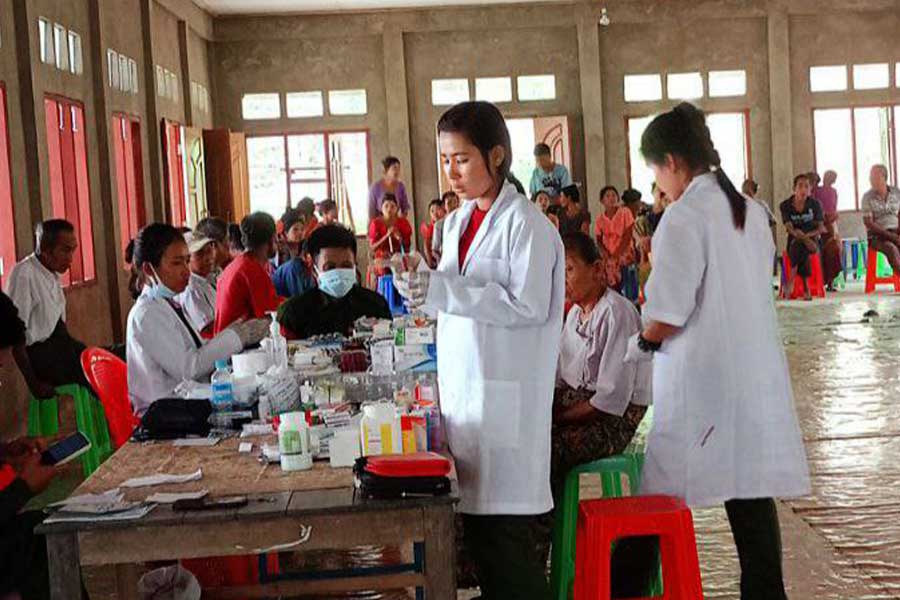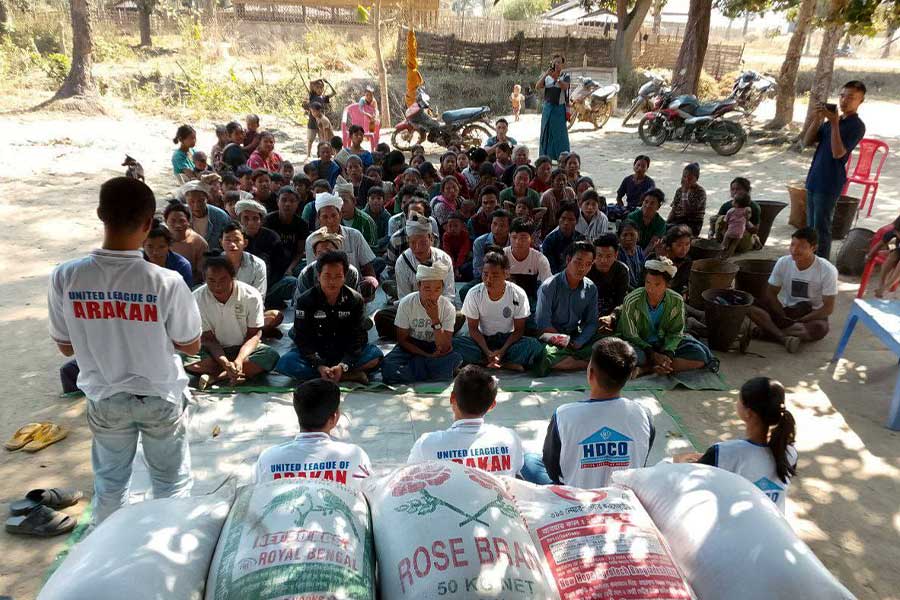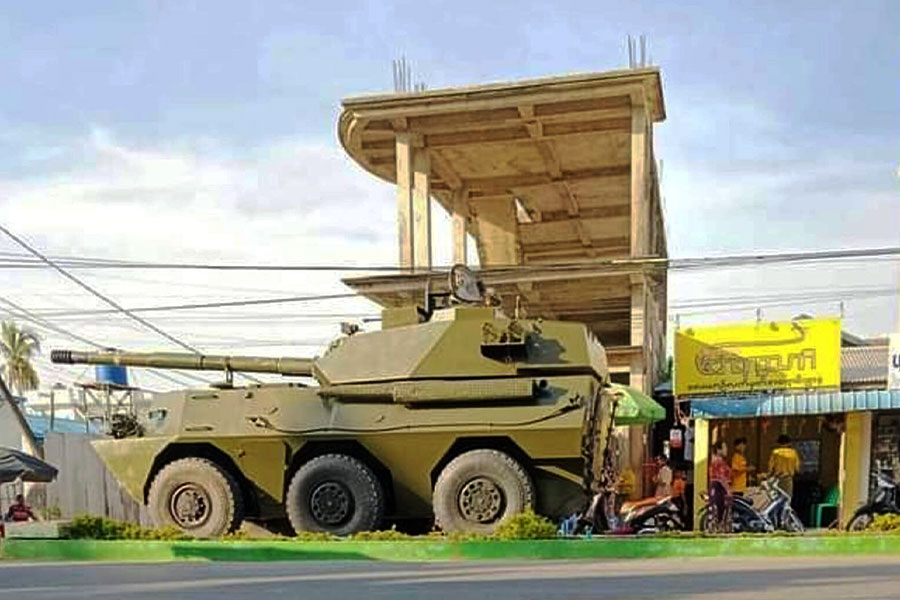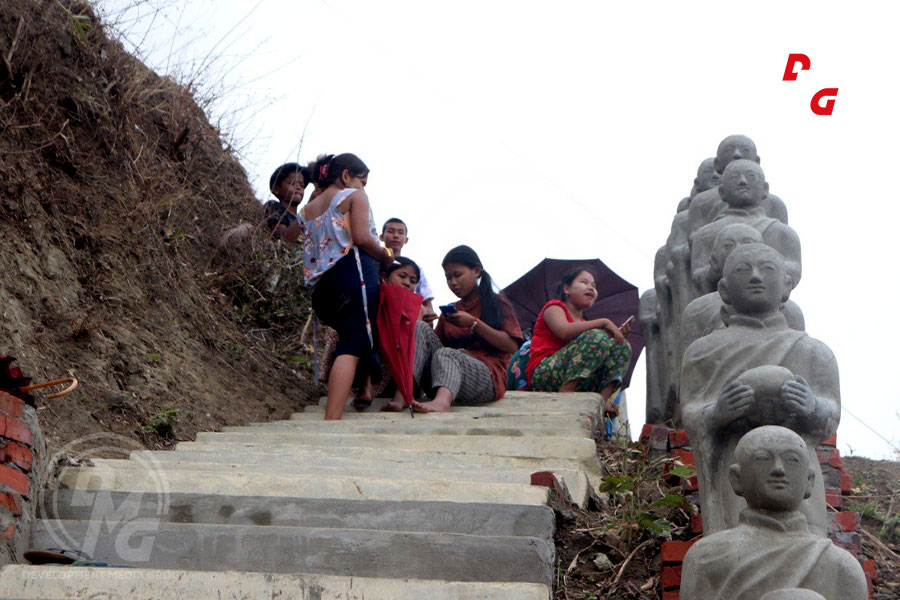- New Diplomatic Movements Between Bangladesh’s New Government and the Arakan Public Administration
- Junta claims over 24 million ballots cast in 2025 poll, cites strong youth turnout
- ULA expands HIV prevention, healthcare services for sex workers in AA-held areas
- Over 600 Mro villagers displaced in Maungdaw amid threats from ARSA, RSO
- Clashes continue in Sittwe as junta reinforces naval, armored deployment
Myanmar’s garment workers hard-hit by pandemic and military coup
Myanmar’s military coup and the pandemic led 220,000 garment workers to lose their jobs, 95% of whom are women, according to a statement from the Delegation of the European Union to Myanmar on July 8.
10 Jul 2022
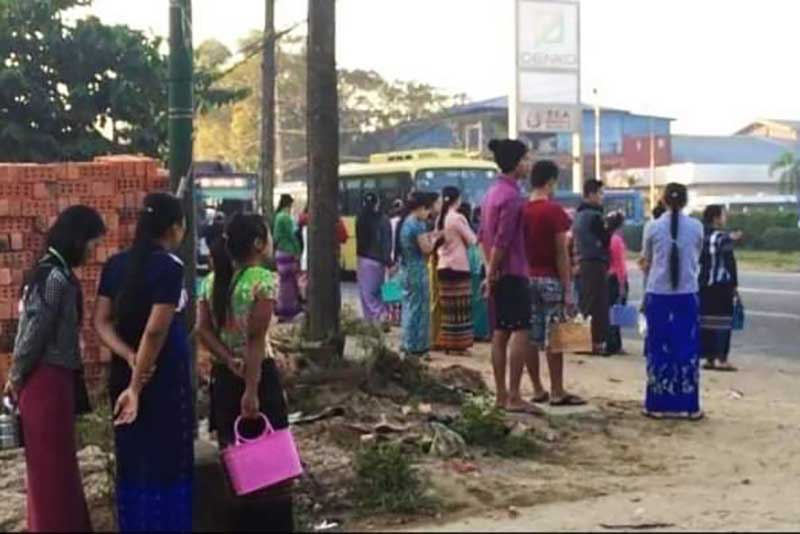
DMG Newsroom
9 July 2022, Yangon
Myanmar’s military coup and the pandemic led 220,000 garment workers to lose their jobs, 95% of whom are women, according to a statement from the Delegation of the European Union to Myanmar on July 8.
According to the Industrial Workers’ Federation of Myanmar (IWFM), more than 200,000 workers lost their jobs between 2019 and May 2021, during which time the Covid-19 pandemic was particularly hard-hitting in Yangon Region, where most of Myanmar’s garment factories are located.
Ma Moe, a garment factory worker living in Kyonmangae Township, Ayeyarwady Region, said she had been unemployed since the garment factory closed in June 2021, and was still struggling to find a job.
“I lost my job when the garment factory was shut down in June last year. I also demanded compensation from the garment factory. I’m still looking for a new job, but I have not [found one]. So I had to return home with difficulties,” she added.
“Responsible businesses have a significant impact to avoid extreme poverty. Access to decent work is a human right,” the Delegation of the European Union to Myanmar said.
But decent work has been hard to come by, say garment workers, even for those who have managed to retain their jobs throughout the pandemic and post-coup fallout.
Some daily-wage workers earn only K4,800 per day and are fired if they miss a day, according to a factory worker in Yangon’s Shwepyithar Township.
“When some garment factories resumed operations, workers had to return to work. But workers are more likely to be bullied by their supervisors and employers,” said a female garment worker. “In addition to workers’ salaries and wages, holiday pay is also deducted. If a worker is sick or has a family emergency, his salary will be deducted. Daily-wage workers are also fired if they miss a day of work. The workers complained to the relevant departments, but nothing happened.”
Human rights activists have criticised factory operators for failing to address labour disputes within the workplace.
“In factories, especially garment factories, workers’ rights are being abused because factory owners no longer negotiate with the employees,” said Ko Zin, a human rights activist. “The factory owners call in the army and the police and arrest the workers in case of any problems. This shows the complete loss of human and labour rights. It also threatens the lives of workers.”





